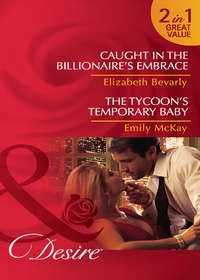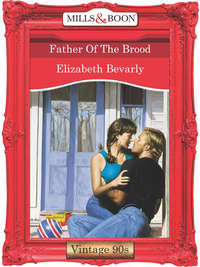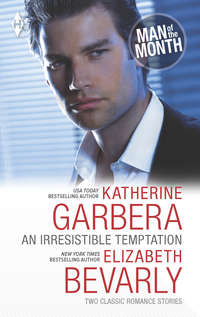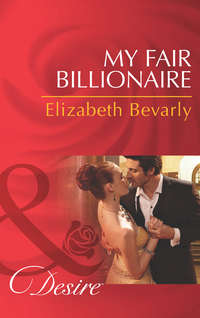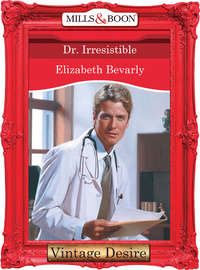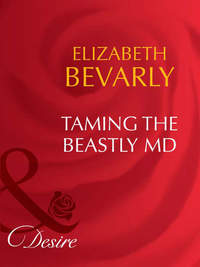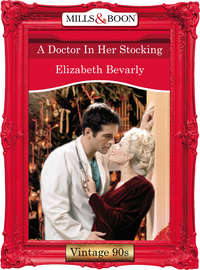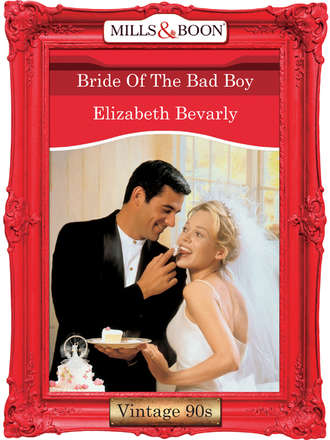
Bride Of The Bad Boy
It was almost laughable, really, Ethan thought, the naïveté and blissful ignorance of this town. If people had any idea what he was really doing here, they’d pack up their children and pets and run screaming for the safety of the shallow green hills outside town. Fortunately for Ethan, he’d covered his tracks well. But then, that was absolutely essential in his line of work. One misstep, and he could be dead.
The front door creaked comfortably as Ethan opened it, and he was assaulted by the unlikely percussion of hard-rock music. Following it to the sitting room, he saw Mrs. Mack sound asleep in a chair beneath her knitting, and the stereo speakers fairly dancing on the bookshelf with every thumpa-thumpa-thumpa of a bass guitar. He crossed to the receiver and switched it off, and glorious silence descended to awaken the elderly woman.
She blinked at the soft light enveloping her like a shawl and met Ethan’s gaze. “Oh. Mr. Zorn. You’re home early. I wasn’t expecting you back until tomorrow night.”
Ethan swiped a hand wearily over his face and rubbed his forehead hard. “My business concluded earlier than I thought it would, so I went ahead and came back. Everything okay?”
His housekeeper nodded. “As well as can be expected with Bob on the horizon.”
He shook his head. So she had been sucked in by all that comet garbage, too, he mused. That was the only thing about this town that Ethan found disturbing. This comet hysteria that seemed to have been affecting everyone since the day he’d arrived a couple of weeks ago. Comet Bob had been blamed for everything from missing pets to power outages to slow mail delivery. And every time local citizens did something stupid—whether it was speeding right by a traffic cop or getting caught in the act by one’s spouse—they conveniently blamed it on Bob.
“Fine,” Ethan said, dismissing the comet talk before it could begin. Suddenly, he was too tired to berate his housekeeper about the front door, so he ran a big hand wearily through his black hair and told her, “I’ll just turn in, then.”
Mrs. MacNamara nodded again. “Me, too. Ever since Bob was first spotted out there last month, I’ve been completely sapped of energy.”
Of course, Ethan thought, that would have nothing to do with the fact that the woman was nearly eighty years old and had recently taken on the total responsibility for her fourteen-year-old great-grandson, who was, if nothing else, a juvenile delinquent. No way could it be that. It must be Bob who was responsible for her sudden weariness.
“You do that, Mrs. Mack,” he said, keeping his thoughts to himself.
He waited until his housekeeper was out of sight, then shrugged out of his Brioni suit jacket and tossed it over his arm, rolling his shoulders against the pressure of the holster strapped across his back. The big MAC-10 pistol tucked inside had traveled in pieces from Philadelphia in the overstuffed garment bag Ethan had checked for the flight. But the moment he’d collected the bag from the luggage carousel, he had ducked into the nearest men’s room to quickly reassemble it, fastening the gun back in place. He felt far too vulnerable without it.
After loosening his Valentino necktie until it hung unfettered beneath his collar, Ethan hoisted his garment bag over his shoulder, gripped his briefcase more firmly and headed upstairs to his room. As he silently ascended the plushly carpeted steps, he switched his briefcase to his other hand and began unfastening the buttons on his Versace dress shirt, pulling it free of his trousers.
Comfort. That was all he wanted at the moment—comfort and relaxation. He paused outside his bedroom door to toe off his Gucci loafers, and was about to reach into the room to switch on the light, when he heard a strange, soft sound whisper through the darkness on the other side. The squeak of a bedspring, he realized immediately. Someone was in his room, squeaking his bedsprings, no less.
He took a single, silent step backward and lowered his burdens to the floor without a sound. Then he plucked the MAC-10 from his holster and flicked off the safety. The balmy night was suddenly suffocating, and he swiped at a thin sheen of perspiration that dampened his upper lip. Then he stepped toward the bedroom door again, pressed his hand flat against the wall and reached around to flick on the light switch.
As the bulb burst into bright white light overhead, Ethan moved into the doorway with his gun drawn before himself, his legs braced, with feet planted firmly against each side of the doorjamb. He had expected to see any number of people greeting him just as menacingly on the other side.
What he didn’t expect to see was a petite blonde dressed completely in black, standing on tiptoe at the head of his bed with the pillows piled beneath her feet, a position that almost gave her the additional leverage needed to reach the painting of Moby Dick overhead. She spun around at the intrusion of light and promptly lost her footing, falling hard on her fanny at the center of the mattress.
When she saw Ethan’s menacing stance behind the big, black gun, she gasped and slapped both gloved hands over her mouth, as if she were trying to stifle a scream. Her dark eyes widened in terror, but she uttered no further sound. Her body seemed to tremble all over, and her chest rose and fell erratically as she struggled to take in enough breath.
Instinctively, Ethan knew that she had broken into his house for some reason other than harming him physically. What on earth that reason could possibly be, however, had him totally mystified. Although he’d been living in Endicott for two weeks now, he couldn’t recall ever having seen the woman who had invaded his house. Because he definitely would have remembered a woman like that. Not to mention eyes like those.
A brown-eyed blonde, he marveled. He’d always had a major thing for brown-eyed blondes. How very fortunate to find one in his bed now.
When he realized how frightened she was of him, he knew he had the upper hand, and he was helpless to prevent the smile that curled his lips. Tightening his grip on the gun, just to make her even more frightened—and therefore more amenable to answering his questions—Ethan took a few steps into his room, kicked the door closed behind him and reached quickly back to twist the key in the lock. Then he withdrew the key and tossed it carelessly to the other side of the room.
Still cupping her hands tightly over her mouth, the woman watched the slim length of metal arc delicately into the air, and took note of its descent and landing behind the Queen Anne chair in the corner by the fireplace. Her gaze moved from there to the open window opposite the bed, and Ethan could see that she was already weighing her chances with both escape routes, wondering which might provide the best alternative.
Nice try, he thought. He wasn’t about to let her get away that easily. Maybe not at all.
He took a few more steps toward the bed, the slight movement enough to bring the woman’s head whipping back around, her gaze locked on his. She finally dropped her hands from her mouth, but she still seemed unwilling—or unable—to make a sound. And she still didn’t make a move from the bed.
As Ethan drew nearer, he realized she was even smaller than he’d originally estimated, and he wondered what the hell she thought she was doing breaking into the home of a man twice her size and weight. She must love to live dangerously, he decided. So danger was exactly what he would give her.
She remained motionless as he completed his approach, and he had to force himself to stop at the edge of the mattress and not crawl into bed beside her. Instead, he fastened his gaze to the black baseball cap that sat backward on her head, and the spray of loosely curled dark gold hair springing from the opening that normally would have been in the back. Then, as salaciously as he could, he skimmed his gaze downward, meeting her eyes levelly before turning his attention to her mouth, her breasts, her body.
“Well, well, well,” he said softly after completing his inventory. When the woman edged backward to press herself against the headboard, he broadened his smile to bare his teeth, held his gun level and perched on the edge of the mattress. “Who’s been sleeping in my bed?” he wondered aloud. “And, more important than that, why is she still here?”
Hoo, boy, Angie thought with only a vague sense of reality. She was in it now. Deep. As she met the gaze of the big, lethal-looking man who had caught her searching his bedroom—because it was way preferable to staring down the muzzle of the big, lethal-looking gun he had trained between her breasts—she wondered what exactly she was going to do now.
Thinking back, she supposed it might have been a good idea to plan an escape route in case Ethan Zorn discovered her presence in his home. But at the time, being discovered just hadn’t seemed likely. And besides, at the time, she’d been too busy trying to decide what to wear.
Hindsight’s twenty-twenty, she thought now.
She supposed, if she tried really, really hard, she could convince herself that the menacing Mr. Zorn wasn’t planning to shoot her. Otherwise, he probably wouldn’t have locked the door and thrown away the key—it would only hinder him in the speedy disposal of her body. Not to mention the fact that if he had planned to shoot her, he probably would have pulled the trigger by now. So maybe all this business with the gun was just a little something he did to scare people.
As far as Angie was concerned, it worked.
“You’re not going to tie me up, are you?”
The question was out of her mouth before she even realized she was thinking it. She squeezed her eyes shut tight. Idiot, idiot, idiot, she berated herself. Why on earth had she asked him such a thing?
When she opened her eyes again, Ethan Zorn was gazing at her with one eyebrow arched in speculation, as if he would like very much to take her up on her offer.
“Do you want me to tie you up?”
Instead of saying anything else that might make her sound as stupid as she felt, Angie clenched her teeth together hard, to keep her mouth firmly shut. Then she drew in a deep breath and held it, and waited to see what he would do.
“I guess I could scare up some rope from somewhere in the house.” He smiled. “If it means that much to you. Then again,” he added, his smile growing lascivious, “maybe you’d like it better if I used some of my neckties. They’re silk, you know. Much less likely to leave marks.”
Still Angie only continued to stare at him, unable to make a sound.
“Well, maybe some other time,” he said, clearly sorry she hadn’t responded more enthusiastically. He eyed her more intently. “So if you’re not here looking for some cheap thrills—which, incidentally, I’d be happy to provide—then what are you doing in my bedroom?”
Angie didn’t—couldn’t—say anything in response.
“Well?” he asked.
She bit her lip and finally managed to find her voice. It was barely a squeak, granted, but at least she was able to chirp, “Well, what?”
He waggled the gun a little, a silent indication that he thought she should already know what he was talking about.
Angie scrunched up her shoulders and pretended not to understand, hoping for some kind of divine inspiration or medical intervention to offer an opportunity for escape. She was working on a good heart attack as it was. Maybe, if she could just buy herself a few more minutes, it would become a full-fledged coronary arrest, and she’d be saved the messy outcome of a shooting death.
Ethan Zorn eyed her curiously. “I’m waiting for an explanation, Goldilocks.” His voice was low and level and redolent of the blue-collar accent one found so prevalent in the northeastern part of the country. “What are you doing in my house?” he added. “My bed? Your porridge been kind of cold lately? You looking to warm things up a bit?”
For one very brief instant, it occurred to Angie that Ethan Zorn had the most beautiful, bottomless, benevolent brown eyes she’d ever seen. Like Bambi’s mother. Or even Bambi himself. Then she shook the sensation off and reminded herself he was a killer. Well, probably a killer, anyway. And killers didn’t have benevolent Bambi brown eyes.
“Oh, is this your house?” she asked, feigning surprise, still hoping to buy herself some time.
He didn’t look anywhere at all convinced by her phony confusion. “It’s one my employer is renting for me while I have business here, yeah,” he told her.
She glanced quickly around at her surroundings, pretending to see them for the first time, then smacked her palm soundly against her forehead. “Oh, wow, am I embarrassed. I thought this was Bumper Shaugnessy’s house. You know Bumper, of course, don’t you?”
Ethan Zorn continued to study her through narrowed eyes, and didn’t respond at first. Angie kept silent, though, thinking every minute she could stall would bring her one step further away from winding up a tidbit in the Examiner’s obits later in the week.
“Uh, no,” Zorn finally said. “Can’t say as I’ve made Bumper’s acquaintance.”
She pretended to be amazed. “But everyone in Endicott knows Bumper. Ever since that incident with the Indiana Corn Queen at the Madison County Fair. Now, surely you heard about that.”
Again the big man sitting on the bed beside her narrowed his eyes at her. “Um, no, sorry. Missed that one, too.”
Angie waved her hand spiritedly. “Oh, this is a great story. You’re gonna love it. See, what happened was that Boomer was actually dating Dierdre’s twin sister, Daphne—Dierdre being the Indiana Corn Queen, of course—and he didn’t realize—”
“Who are you?”
Angie blinked quickly, and once again found herself pinned to the spot by Ethan Zorn’s espresso gaze. “I’m Angie,” she replied automatically, wondering when she had chosen to speak. “Angie Ellison.”
He shook his head, clearly confused. “Why are you in my house? In the dark? Dressed in black? As if you were trying to …oh, say …rob the place?”
Once more, she shook off the odd sensation that the man sitting beside her—the man holding a gun on her, the man who was a threat to her entire family—was really just a cream puff deep down inside.
“I told you,” she said softly, forcing the words out of a mouth suddenly gone dry. “I thought this was Bumper Shaugnessy’s house.”
Ethan Zorn shook his head. “Uh-uh. No way, sweetheart. I ain’t buyin’ it.”
In one swift, deft move, he pointed the gun toward the ceiling, ejected its clip with a loud ka-thwack, checked it and tucked it back into the grip. Then, when the cacophony of scraping metal fell silent, he trained the ugly weapon on Angie once more.
“Now, then,” he said. “Let’s try this again. Who are you, and what are you doing in my house?”
“I’m Angie,” she repeated. “Angie Elli—”
“I got the name down fine the first time, honey. I just don’t recognize it.” He dropped his gaze briefly to her mouth, then brought it quickly back up to her eyes. “Help me out here, or I’m going to have to resort to doing something I don’t wanna have to do.”
She inhaled a deep breath and scrambled for something that might explain her presence in a halfway plausible fashion. “Um…would you believe I’m…uh…delivering some Junebug cosmetics that your housekeeper ordered last week?”
Ethan Zorn shook his head very slowly. “No, I don’t think I believe that. Try again.”
Angie bit her lip. “Um…would you believe I’m working for ‘Bugs’ Burger’s Extermination—at ‘Bugs,’ we think the only good bug is a dead bug—and have reason to believe that a rare breed of night-crawling cucaracha is infesting your walls?”
Again, that slow shake of his head. “Nope.”
Angie gave it one last shot. “Would you believe, um…that I’ve been admiring you from afar for some time now and just wanted to make your acquaintance?”
That, at least, brought forth a smile from the inimitable Mr. Zorn. Unfortunately, it was a decidedly lascivious smile, and Angie began to think maybe that last attempt at explanation might not have been such a good idea after all.
“Although I think I like the idea of being…admired from afar,” he began, “something tells me that’s just not quite it, either. Three strikes, Goldilocks,” he added, lifting the gun that had begun to droop. “Unless you wanna give it one last shot—no pun intended—and tell me the truth this time, then you’re outta there.”
Two
Ethan Zorn had been in the business a long time, and he’d met more than his fair share of characters along the way. Manny “The Meat Hook” Moran, for instance, came quickly to mind. And Two-Fingers Nick. Joey the Knife. Goosey Lucy…or something like that—Ethan could never quite remember that guy’s name. And then there was that South Philly boy whose name had always come out sounding like “Lenny Bagagroceries.”
But he’d never encountered anyone quite like Angie Ellison. Angie “The Angel” Ellison, he decided. Somehow, the name fit her. There was something about her that reeked of a higher existence, a higher standard. In addition to being beautiful in a way that Ethan could only describe as ethereal—yeah, that was a good word for it—there was an innocence and beatitude about her that was unmistakable. And although just about everyone in this hick town seemed naive to a fault, on this woman, it was carried to new heights.
He just wished he knew who the hell she was and what the hell she was up to.
She should be terrified of him, he told himself. He was twice her size, armed, and she was locked in a bedroom with him. For all she knew, he intended to kill her. Any other woman would have been scared speechless. But Angie Ellison was actually flirting with him. Flirting, for God’s sake. That was the only way Ethan could interpret the look on her face, the timbre of her voice, the playfulness behind her words. Yeah, she was trying to save her life—it didn’t take a genius to figure that out. But she was doing it so…so…lightheartedly.
It was giving him the creeps.
Okay, so maybe he could ascribe her relative easiness at being made a hostage to the fact that she was obviously a native of Endicott. One thing Ethan had learned since locating here, the people in this community had clearly been living in some kind of Eisenhower-era vacuum all their lives and didn’t have even the vaguest concept of what real life was all about. They still celebrated Founders’ Day here. They had a pumpkin festival coming up next month wherein they were holding a Sweetheart’s Dance. That’s actually what they were calling it—a Sweetheart’s Dance.
Living in Endicott, he had quickly decided, was like being trapped forever in a Hayley Mills movie.
So, clearly, Angie Ellison couldn’t possibly fully appreciate the precariousness of her situation. Which meant maybe Ethan ought to turn up the steam some.
“Angel,” he began.
“‘Angie,’” she corrected him quickly.
“Angel,” he assured her with a confident nod. “We have a couple of ways we can go here.”
She arched her brows in what he could only liken to curiosity, as if she were genuinely interested in hearing his suggestions. They might as well have been taking tea together, for all the concern she seemed to have for her imprisonment.
“Now, I know you didn’t mistake my house for this Boomer whoever’s place,” he began again.
“Bumper,” she interjected. “Bumper Shaugnessy.”
“Whatever,” he said wearily, feeling the gun in his hand begin to sag again. This time, he didn’t bother to correct his aim. “I don’t know why you’re here, but I’m sure it has something to do with me.”
She inclined her head forward. “And your name is…?” she asked.
He parted his lips slightly with his tongue and watched her thoughtfully. “Zorn,” he finally told her. “Ethan Zorn.”
She nodded, but seemed more fixed on what his mouth was doing than on what he was saying. He smiled. This was definitely getting interesting.
“It’s very nice to meet you,” she told him, sounding genuinely pleased to make his acquaintance. “Are you only visiting in Endicott? Do you have relatives here?”
“What I’m doing here, Angel—”
“‘Angie.’”
“Angel, is really none of your business. However,” he continued quickly when she opened her mouth to interrupt him again, “what you’re doing in my house is very much my business. Especially since you keep avoiding the question.”
“I’m not avoiding it,” she told him. “I was just trying to make polite conversation.”
“Thanks, but I’d rather make sense of this whole situation.”
He edged closer to her on the bed, until his thigh was pressed against hers. Then he reached behind her to grab the bill of her cap, yanked it from her head and tossed it to the floor. A rich, rowdy stream of gold, copper and silver spilled down around her shoulders in loose spirals of curls, and she expelled a tiny, hiccuping sound of surprise. He smiled his most sinister smile as he reached for a handful of the soft, silky tresses at her nape, then wrapped them loosely in his fist.
He had no desire to get ugly. Angie Ellison seemed like a nice person, and he always did his best to refrain from roughing up nice people. Unfortunately, for the line of work he had chosen, roughing people up was near the top of requirements in his job description, and every now and then those people seemed perfectly nice. He hoped this wouldn’t be one of those times.
“Now then,” he said, trying once more, not quite able to ignore the softness of the hair he had wrapped around his fingers and the scent of spring flowers that had suddenly surrounded him the moment he’d freed the tangle of curls. “What are you doing in my house?”
The jig was up, Angie thought. Or whatever it was they said in those gangster films she used to sit through at the Roxy Theater on Willow Street when she was a teenager. Stalling wasn’t working, and frankly, her brain was spinning from trying to make chitchat a viable source of survival. Ethan Zorn was starting to get impatient. And although she wasn’t entirely sure what impatience did to mobsters, it was probably a safe bet to assume that it didn’t much become them.
That assumption was reinforced when he bunched a fistful of her hair in his palm and tugged her head backward, then settled the muzzle of the gun against her throat.
“Tell me,” he demanded.
“Oh,” she gasped, her heartbeat hammering double time at the feel of the cool, hard metal nestled against her tender flesh.
This was not the way she had envisioned the evening turning out. When he tugged on her hair again, harder this time, Angie finally, finally began to understand exactly what she was up against. Not only had she gotten in way over her head, but she was about to be sucked down into a vast whirlpool of dark water unlike anything she’d ever encountered before.
“Please…” she petitioned softly, “you…you’re hurting me.”
To her complete mortification, tears sprang to her eyes—more a result of her fear than anything physically painful—and she bit her lip hard to prevent them from spilling. She did not want this man to see her cry. Crying was a sign of weakness, and she didn’t want to appear weak to Ethan Zorn.
His hold on her hair loosened some at the sight of her tears, and his expression actually seemed to soften. Strange, she thought, that a gangster could look guilty and remorseful over something as simple as a woman’s tears. But Ethan Zorn looked exactly that. After a moment, he removed the gun’s muzzle from her neck, clicked on the safety and returned the weapon to its holster. But he continued to hold on to a handful of her hair, stroking a curl between thumb and forefinger, as if he’d discovered a magic talisman of some kind.
“Last chance,” he told her, his voice low, but lacking in some of the menace it had carried earlier.
“All right,” she ceded, finally understanding that there was no way he was going to let her go until she answered his questions. “Like I said, I’m Angie Ellison. And I…I work for the Endicott Examiner.”
“The newspaper?” he asked, seeming genuinely stunned by her revelation.


